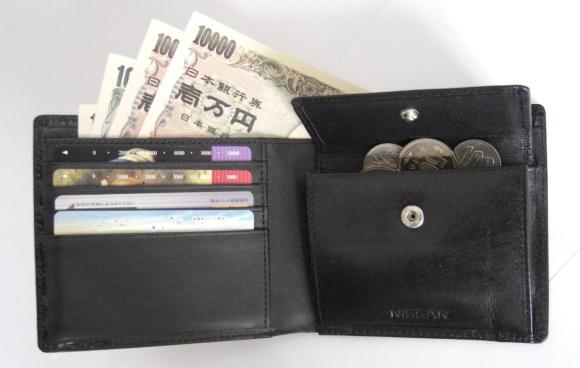
Besides great sushi, great customer service and ubiquitous vending machines, another great thing about living in Japan is the relatively low crime rate there. Although the country certainly has its criminals (including very cute and cuddly ones), visitors, tourists and expats in Japan routinely extol how Japanese culture has created a society where even a wallet full of cash will be returned to its owner most of the time. After hearing about Japan’s reputation for being an honest, rule-abiding country, a Saudi Arabian TV show created a social experiment to see what would happen when they left a very conspicuous wallet on the busy streets of Tokyo.
While hardly a scientific experiment, the team at Aram TV sent a team of reporters to a bustling plaza in Tokyo with a wallet full of yen. Wondering how the people of Tokyo would react to seeing an obviously misplaced wallet, the main reporter picked a very conspicuous green bench where it would be very easy to spot.
▼ Look at that tempting black leather wallet against a nice green backdrop…
The reporter leaves the area and lets the cameras capture what happens next. Within what seems like a few minutes, a couple walks past the wallet. At first they walk around the bench, apparently trying to see if the owner if nearby. But when they can’t immediately find the wallet’s owner, they pick it up and take it to a nearby police officer.
▼ The woman picks up the wallet, saving it from any potential thieves in the area
▼ The responsible couple with baby in tow give the lost item to a local police officer
After seeing the wallet being turned in at the police box, the reporter heads there to talk to the police and get what he “dropped” back. The Japanese authorities apparently are quite used to seeing lost items returned to them and instruct the reporter to go to a larger police station where such items are sent. The reporter heads to the station and gets his wallet back without losing a single yen.
Although many non-Japanese commenters on the YouTube video praised the couple for quickly returning the wallet and thought it pointed to the great values in Japanese society, many Japanese netizens were less than thrilled at the social experiment. They thought it oversimplified Japanese values and some shared their own examples of losing something valuable, but never getting it back. But beyond the results of the informal study of Japanese culture, a lot of netizens thought it was irresponsible to waste the time of the police and passers-by just to “prove” that Japan is safe.
To any other foreigners wanting to do this kind of experiment, please think of the time you will waste, not only of the police but also the people who return your “lost” wallet.
I’m sorry to ruin the image of Japan, but I lost my wallet twice and both times it was returned…with all of the money stolen.
Meanwhile, bikes and umbrellas get stolen all the time.
A few of the more, ahem, racist comments by the Japanese netizens accused the majority of crime in the country on immigrants, especially those from “Specified Asian Countries.” And many of these Internet nationalists were irked to see a video that might attract even more foreigners to Japan, seeking a safer place to live, because “immigrants bring their overseas crimes here and force us Japanese to be even more vigilant against crime.”
Besides the uncomfortable racial and xenophobic discussions, other comments from Japanese netizens were happy to see how their country is portrayed overseas and felt lucky to live in such a country. Although only in Arabic, check out the video below starting at the four-minute mark to observe the wallet-dropping research. Let us know in the comments below what you think of the social experiment and whether you have had a similar experience in Japan or another country!
Video: YouTube (Aram TV)
Feature Image: Wikipedia
Source: Otahou